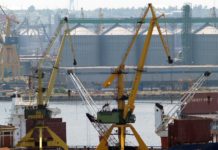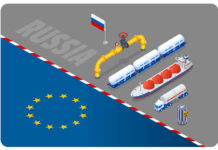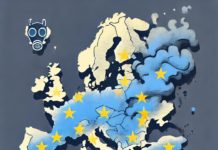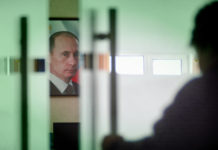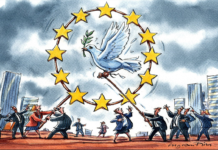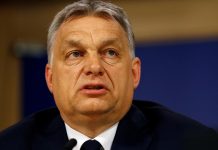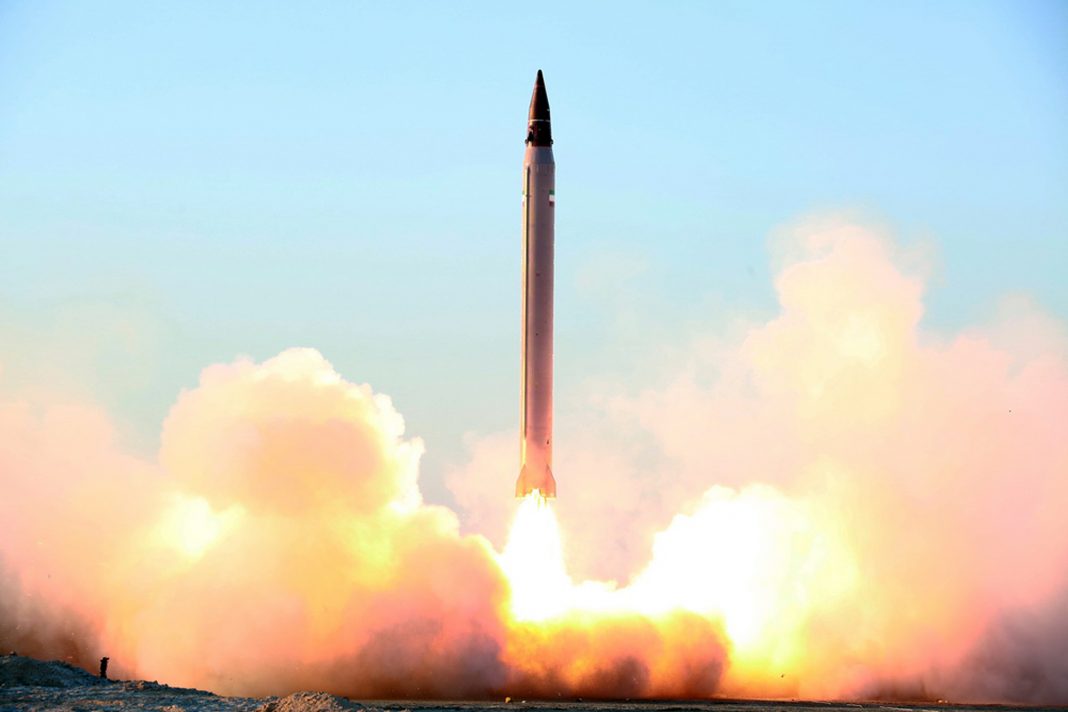
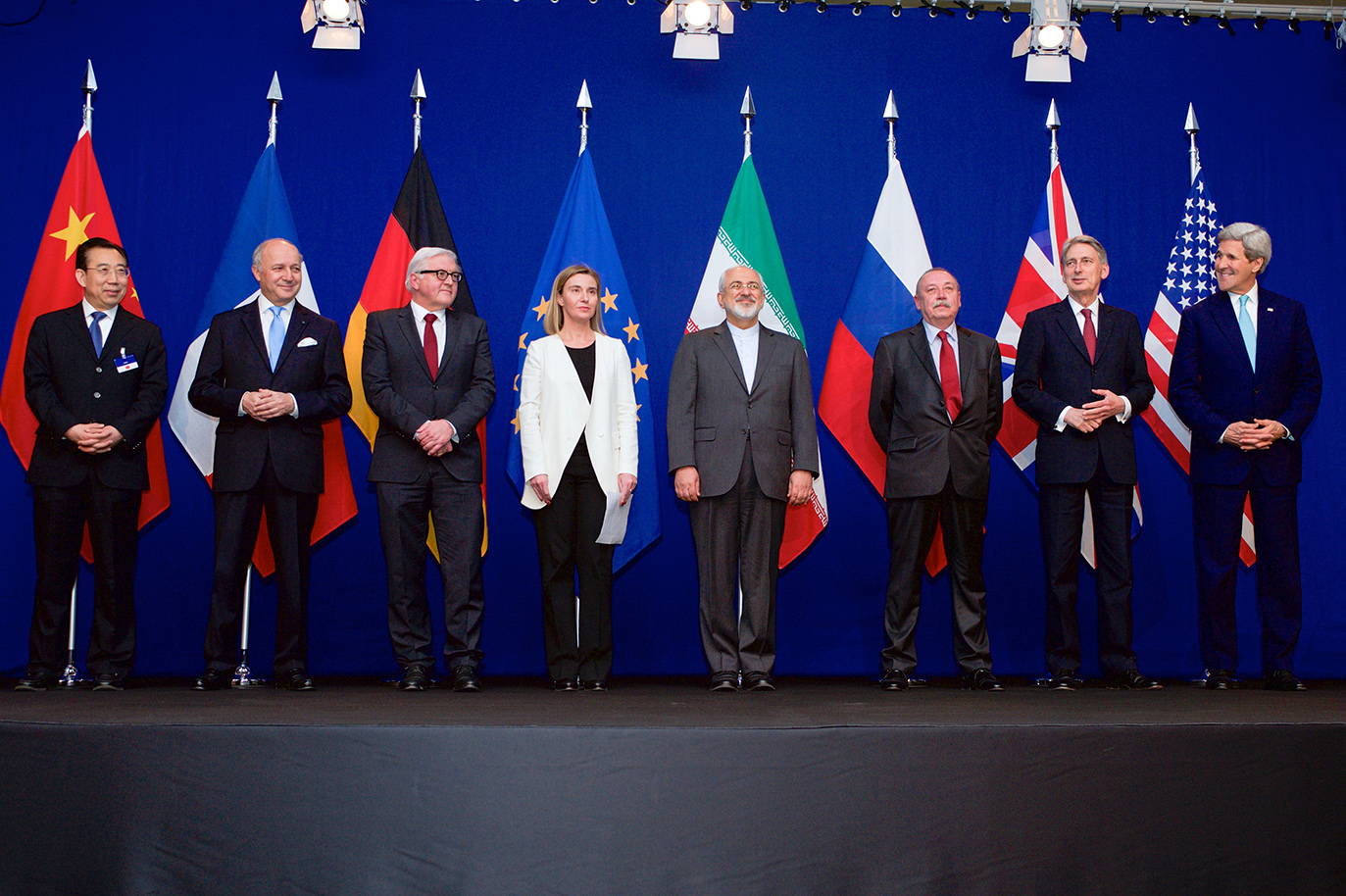
While the historic summit between the U.S. and North Korea is surely a welcomed shift from the dangerous nuclear rhetoric that defined the dialogue in the last years, the recently delivered speech by Donald Trump, where he announced that he will withdraw the U.S. from the Iran deal, marks a dark turn in the already layered, awfully complicated and grim geopolitical picture of the Middle East. The ripples of this decision are already being felt in Europe and especially in its relationship with Washington. What may have been an awkward but working relationship between the two sides of the Atlantic, may now take a more dangerous path, one with far reaching consequences for the 21st century.
Why should Europe care if the U.S. withdraws from the Iran deal?
The short answer is secondary sanctions. As this Royal United Services Institute commentary points out, the U.S. did not lift its primary sanctions on Iran in 2015, when the deal was reached, but rather agreed to issue time-limited waivers for non-U.S. entities that wanted to do business in Iran, without the threat of American sanctions. Given the extent of the influence the U.S. financial system has on other national financial systems and global financial ecosystems, doing business with Iran might pose a significant risk.
With roughly 82 million people and a need for modernization, the Iranian market ticks a lot of the boxes for investment and future profit for Western companies, especially European ones. After the lifting of part of the sanctions in 2015, trade between the European Union and Iran grew exponentially. 2016 marked a 339.8% increase in imported goods and services from Iran, with a value of 5.513 billion Euros, making the EU Iran's second largest trading partner, after the UAE. In 2017, the European Union exported goods and services worth 10.8 billion Euros, with total trade reaching almost 21 billion Euros.
While Iran is only the 30th export market for EU goods, a series of high profile business deals between European corporations and the Iranian government, together with the powerful diplomatic and geopolitical undertones that the deals carried with them, have further strained the U.S. – E.U. relationship. Companies like Airbus (France), Daimler (Germany), Total (France), Danieli (Italy), Aéroports de Paris and Bouygues (France), Vinci (Italy), Siemens (Germany) or Royal Dutch Shell (British-Dutch) are already on track to implement business deals that were reached after the signing of the JCPOA and now face uncertainty.
Toulouse-based company Airbus has already delivered three jets to Iran Air and has 95 undelivered planes in its backlog, earmarked for the same customer, according to Bloomberg. The publication also notes the very different approach the Europeans had in comparison with the U.S.-based Boeing corporation. While the Americans were quick to downplay the contract after Trump was elected, the Europeans were very aggressive, which now makes it much more difficult for them to retract from the deal. Airbus is particularly important for both French and German political sensitivities because of the 11% stake they have in the aviation giant. With the company facing corruption allegations with regards to commissions paid to win sales and a shake-up in the top management looming for 2019, both Macron and Merkel have stated that they will be keen to look after their respective national interests with regards to the direction of the company. Surely, a deal like the one with Iran is definitely important for the future of the company and thus on Macron and Merkel's radar.
Leaders in Europe have been quick to voice their opposition to the White House decision. Boris Johnson, the UK’s Secretary of State for Foreign and Commonwealth Affairs said in a tweet that the UK “remains strongly committed to the JCPoA”, while Emmanuel Macron said in an interview with German publication Deutsche Welle that "we stand today at a historic moment for Europe — Europe is in charge of guaranteeing the multilateral order that we created at the end of World War II and which today is sometimes being shaken." Macron seemed particularly disappointed that his charm offensive with Mr. Trump did not have the desired effect. His recent visit in Washington had as a fundamental premise to find a mutual agreed course of action for the Middle East, especially with Syria and the Iran deal.
Deeply regret US decision to withdraw from the Iran nuclear deal. UK remains strongly committed to the JCPoA, and will work with E3 partners and the other parties to the deal to maintain it. Await more detail on US plan.
— Boris Johnson (@BorisJohnson) May 8, 2018
France’s Finance Minister Bruno Le Maire was very direct and abrasive in his comment, saying “Do we accept extraterritorial sanctions? The answer is no. Do we accept that the United States is the economic gendarme of the planet? The answer is no. Do we accept the vassalization of Europe in commercial matters? The answer is no.”
Angela Merkel was not as direct as Le Maire, but she definitely decried Mr. Trump’s decision. During a peace prize ceremony she attended at St. Francis' Basilica, in Assisi, Italy, where she was awarded the St. Francis Lamp for peace for her role in welcoming Syrian refugees in Europe, Merkel said, following the developments between Iran and Israel, that they were "yet another reason for further effort to resolve the conflict.", suggesting that it was an acute manifestation of a bad foreign policy decision. She reiterated the fact that Germany will try to salvage the deal without U.S. involvement.
A U.S. – E.U. systemic rift is possible and it should worry all of us
As Andreas Kluth, editor-in-chief for Handelsblatt writes, the current friction between Washington and its European partners is similar with the state of affairs in 2003, following the U.S. led invasion of Iraq, based on intelligence on WMDs that later was proven wrong. Berlin did not want to get involved in an invasion that did not offered a clear exit. The aftermath showed that, ultimately, the Middle East experienced even more chaos and human loss, further destabilizing adjacent countries and firing up a regional geopolitical competition that saw Moscow become a fundamental player.
He correctly underlines the fact that shunning the deal will destroy any sway moderates have in Tehran, the people that form the communication bridge between the West and the a largely conservative, religious nation, with a troubled history of dealing with Washington and with a political class were hardliners are now hitting the nail in the head by saying that the United States simply does not respect its international obligations and thus, a breakout in terms of nuclear weapons must be achieved.
The problem with Mr. Kluth’s comparison is that in 2018, the relationship between Washington and Brussels (particularly Berlin) is further burdened by the annexation of Crimea and a far more aggressive Russia, a rise in populism and of a far-right in Europe that sees similarities between itself and the election of Mr. Trump and his core message. While in 2003 the U.S. was still emboldened by the tragic events of 9/11 and its status as the only superpower could not be questioned by any other state actor, or even group of state actors, today the U.S. faces a post-2008 financial crisis environment where, despite recovering and cultivating growth in the economy, it lost part of its credibility on the world stage, allowing Moscow and Beijing to catch up, both in terms of soft and hard power.
Both Macron and Merkel have stated directly and indirectly that the multilateral liberal order that we’ve experienced during the Obama era has now come to rely solely on Europeans, if it is to be perpetuated. This is great news for Moscow. The fiery remarks of Bruno Le Maire were immediately picked up by Russian state financed media organization Sputnik. The use of the term ”vassal” by the French Finance Minister makes his comments especially poignant to Sputnik’s and Russia's message to Europe, that it is a colony for Washington, trying to impose its political will on Europeans, based on strictly American business interests. Even though Russia is facing a balancing act in the Middle East, not wanting to be entangled in a Israeli – Iranian war in Syria, the U.S. exit may be contributing to achieving one of its most fundamental foreign policy objective, that of diminishing U.S. influence in Europe, possibly dislodging American military assets and reassurance from Europe and luring Europeans in one-on-one national level negotiations on energy, security,trade and other topics.
While NATO is a military alliance with decades of experience and battles fought together by its allies, this erosion process is not something new. Fractures between allies have existed for a long time, especially with regards to Turkey and its dealings with Greece and on its Eastern and Southern flanks, in the Middle East, as Foreign Policy’s Yiannis Baboulias notes. The authoritarian drift in countries such as Hungary and Poland has put Brussels at odds with Budapest and Warsaw. Economic disparities between Western Europe and its Eastern and Southern regions have also stirred up backlash between member states. A report by Chatham House says that immigration patterns in the U.S. and the European Union, particularly the influx of South Americans and Asians in the U.S. and Middle Eastern and African populations in Europe will also further strain the relationship, with Washington and Brussels having very different strategies towards immigration.
But until now, all of this friction has been more ore less buffered by the American security umbrella. Washington’s determination in upholding the values of liberal democracy, as well as actively deter Russia on NATO’s Eastern flank has made Europe a much safer place, despite a very complicated and sometimes painful history.
China is in an even more advantageous position due to the U.S. exit from the deal and a potential widening rift with Europe. There are already reports that China National Petroleum Corporation (CNPC), a state-owned Chinese oil and gas corporation and one of the largest energy companies in the world, is already ready to take over Total’s stake in the giant Iranian South Pars gas project. According to Reuters, CNPC already has a 30% stake in the oil field, with an option to buy Total’s 50.1% stake. China is by far Iran’s largest export market, with 15.47 billion Euros in trade in 2017, so Tehran has all the business and logistic reasons to want to compensate the loss of trade through sanctions via its Eastern partner.
The symbolism of the withdrawal is also important. The U.S. might have some reasonable arguments in terms of Iran’s behavior in the region and its continued ballistic missile program, but the JCPOA was never promised to deal with the whole sprectrum of conflicts Iran and its proxies generate, but more specifically to try to reduce Tehran’s breakout capability, meaning that it tried to expand the time Iran needed for building a functional nuclear weapon. In this regard, the deal was a success. In 2015, this metric was measured at three months, according to Belfer Center for Science and International Affairs. According to this analysis from the Brookings Institute, based on the limits imposed by the agreement on the number of centrifuges and the amount of enriched uraniam that it could store, the breakout time would have been expanded to 1 year until 2025. This difference was the main driver behind the argument made by the Obama administration
But now, by withdrawing, despite the deal having some flawed parts, the U.S. shuns multilateralism and the principle of adherence to international norms and conventions, which will definitely embolden other major powers. For example, China might choose to ignore further decisions made by international tribunals, such as the one made in Hague in 2016, with regards to its maritime actions in the South China Sea and the subsequent legal row with the Philippines. Moscow will also use this as a precedent to showcase “Western hypocrisy” when it will face criticism with regards to breaking international norms, such as the illegal annexation of Crimea.
Also, in terms of symbolism and diplomacy, Mr. Trump appointed former UN spokesman Richard Grenell to the post of U.S. ambassador to Germany. This already has triggered problems because of Grenell’s first tweet as ambassador. He said that “German companies doing business in Iran should wind down operations immediately,” which angered many Germans feeling that Grenell is mirroring ta perceived aggressive attitude of Mr. Trump, giving them orders on what to do with regards to Iran. Wolfgang Ischinger, a former German ambassador to the United States, said in a responding tweet to Mr. Grenell to “never tell the host country what to do, if you want to stay out of trouble. Germans are eager to listen, but they will resent instructions”. The left leaning publication The Intercept published a detailed report on Mr. Grenell, citing his bullying attitude toward journalists and the fact that he had to resign from a position in Mitt Romney’s presidential campaign in 2012, due to a recorded history of sexist online attacks on women politicians. This kind of nomination only deepens the feeling in Germany that Washington, and Mr. Trump in particular, wants to dictate Berlin the conditions in which it will abide to its security guarantees, as long as Berlin is compliant.
As @realDonaldTrump said, US sanctions will target critical sectors of Iran’s economy. German companies doing business in Iran should wind down operations immediately.
— Richard Grenell (@RichardGrenell) May 8, 2018
Ric: my advice, after a long ambassadorial career: explain your own country’s policies, and lobby the host country - but never tell the host country what to do, if you want to stay out of trouble. Germans are eager to listen, but they will resent instructions.
— Wolfgang Ischinger (@ischinger) May 9, 2018
The election of Mr. Trump on what some political analysts and pundits have called a platform that borrowed a lot from the far-right corners of American politics has emboldened the far-right elements in Europe, including UKIP, Nigel Farage's political vehicle in his quest to have Britain exit the European Union. Steve Bannon, former White House chief strategist, was in Rome during the latest Italian parliamentary elections, cheering for the populists represented by the League or the 5Star Movement. Politico is quoting an interview he gave for the Swiss newspaper Weltwoche where he commented on the election results: “This is just a populist victory and should send a massive signal to the permanent political class in Rome and more importantly to the permanent political class in Brussels that people want change.” Bannon is generally regarded as the firebrand behind Trump’s populist appeal and nationalistic agenda. Having him personally encouraging euroskeptics is definitely sending a strong message in Brussels.
The transatlantic relation is the fundamental building block of Western culture and liberal democracy today. The relative growth of the political and geopolitical clout of actors such as China and Russia means that this relation is even more important, as none of the two sides of the coin can balance political, military and ideological challenges that come from the East alone, as well as to adequately respond to parallel crises in the Middle East, South China Sea or NATO’s Eastern flank.
If Europe does follow through on its own path, further isolating itself from the U.S., it will open the door to nationalism and populism on the continent. Old historic rivalries will reignite on the backdrop of a power vacuum. Both Germany and France, and in a lesser extern Great Britain, have decried the new U.S. stance, particularly with regards to Iran, but have not stepped in to bring the E.U. together and stop the erosion of democracy in its Eastern member states, or for that matter, reassure them sufficiently with regards to Russia, with energy projects such as Nordstream 2 being approved in Germany.
The above mentioned report from Chatham House ended in a positive note, concluding that the effects of the Trump presidency on the transatlantic relationship will not be as dramatic on the long-term and that fundamental shared interests will prevail. Its author, Xenia Wickett, head of the US and Americas programme at the organization, said that “While his [Trump's] policies may have reverberations beyond his time in office, there is no reason to believe that the consequences are likely to be profound and long-lasting for the fundamental interests of the transatlantic relationship.”
America and Europe have defeated fascism and communism together in the 20th century, and became the most prosperous economic and geopolitical space in the world. If not for the American soldiers that died on the beaches in Normandy or the British inventions that crossed the Atlantic, the world would be a much different and darker place. We still are trying to understand the challenges and threats to Western values posed by the 21st century but we can say with high certainty that they will be much harder, if not impossible to overcome, without the United States and Europe working together.



